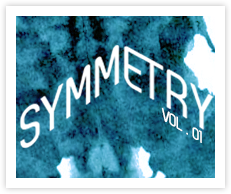

Machiavelli with a Twist
Bridget Ebsary // April 23, 2012

Even though Niccolò Machiavelli wrote The Prince in 1513, some of his theories seem to be resurfacing in Canadian politics. The Prince is widely considered a manual for how to become a politician without those pesky morals and principles. In the book, Machiavelli debates whether it is better for a politician to be loved or feared. He wrote:
“Men are less hesitant to offend someone who is beloved than someone who is feared, for love is preserved by a link of obligation which, owing to the baseness of men, is broken at every opportunity for their advantage. Fear, on the other hand, preserves you with a dread of punishment which never fails.”
Nearly 500 years later, Canadian politics has put a small twist on Machiavelli’s theory. The philosophy now is that if you can’t get the voters to love you, make sure they fear your opponent and stay away from the polls. Voter suppression is now the name of the game.
In an article from the Chronicle Herald by Dan Leger, different forms of voter suppression are described. Leger defines voter suppression as “a party’s use of co-ordinated messaging to discourage supporters of rival parties from voting.” Leger asks Warren Kinsella, a long time Liberal party strategist, about voter suppression. Kinsella claims that the attack ads from the Conservatives kept about a million Liberal voters away from the polls in 2008.
Leger describes how voter suppression tactics were made into an art form in the United States and are now crossing the border. He writes:
“Since it works there, it had to migrate here, just like the pervasive attack ads that now stain our politics. The Conservatives made themselves the party of attack ads, so it’s not much of a stretch to believe they were behind the robocalls and other suppression actions.”
The robocall scandal is the latest to taint the democratic process here in Canada. Thousands of complaints have been made to Elections Canada from voters who say that they received suspicious phone calls before the May 2011 federal election. The automated calls targeted primarily Liberal supporters. The message, which claimed to be from Elections Canada, told voters that their poll locations had been changed and directed voters to polls which in fact did not exist.
Dr. Jeffrey MacLeod, chair of the Political Studies department at Mount Saint Vincent University, says that impersonating Elections Canada is a crime with serious consequences. If those involved with the robocall scandal are found guilty of violating the Elections Act, they can face five years in prison and fines of $100,000 or more.
Dr. MacLeod emphasizes that although the details are still unclear, “… it certainly seems from the coverage so far that this is more than just an isolated incident in one riding.” He continues, “Even if only a small number were suppressed, just the perception of suppressing voters and that these sneaky tactics are somehow just a part of the game – if that becomes the perception, then it really damages the integrity of the voting system.”
According to Dr. MacLeod, the debate over the robocall issue and the media coverage of it is damaging for Canadian democracy. He says “Headline after headline about dirty tricks is reinforcing a frame of corruption and meanness in the political system.”
The question yet to be determined is exactly who is responsible and how high up the chain were the people involved? “Some say I overstate it, but I don’t think so. I think this could be Canada’s Watergate,” says Dr. MacLeod. “How is that (Watergate) any less serious than a concerted effort to suppress people from voting?”
If it turns out that the Conservative party is responsible for the robocalls, then Mr. Harper may want to refer back to chapter eight of Machiavelli’s The Prince. This section gives advice to those who have gained power “through some wicked or nefarious ways.” Machiavelli warned aspiring politicians to be careful of their actions for they may come back to haunt them. He wrote:
“We should therefore note that, in seizing a state, the usurper ought to consider carefully which injuries it is necessary to inflict, and to do them all at one stroke as to not have to repeat them daily. By not unduly unsettling men he will be able to reassure them, and win them to himself by offering them benefits. He who does otherwise, either from timidity or evil advice, is always compelled to keep the knife in his hand.”
It will certainly be interesting to see what details come out as events unfold. I wonder… did that new tough on crime legislation impose tougher sentences for impersonating government agencies?
